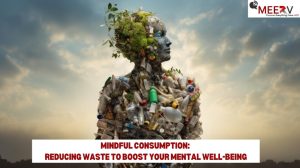Could A Vegan Diet Help Prevent Cancer?

Veganism is gaining ground as a diet that is not only ethically sound and just as tasty as any other diet, but because it might have important implications in cancer study and prevention.
Does going on a vegan diet reduce your risk for cancer?
Let’s examine this question scientifically.
Veganism is said by its proponents to have a host of positive health effects, such as
- Reduced weight
- Improved blood sugar
- Improved heart health
- Protection against Type II diabetes
Cancer is a family of diseases that can form anywhere in the body, caused by genetic mutations. Cancers can be especially devious as they can be confused with lesser, more benign health conditions, causing cancer mediclaims to be more exhaustive in their terms, as anyone seeking mediclaim for cancer patients in India will know.
However, palliative care is available for cancers, as everyone engaged in a cancer insurance will be familiar with, and the factors that can increase an individual’s chance of getting cancer are well-known.
While veganism is touted as an incomplete diet because of its lack of critical B vitamins that are only found in animal products, as long as supplementation can be had, the disadvantages of not consuming animal products can theoretically be offset. Those who have a cancer policy should educate themselves if veganism can be considered a preventative tool in their battle against illness.
Animal products which are lacking in vegan diets do contain nutrition that is not found elsewhere, but it is important to note that consumption of all animal products come with their own consequences as well.
A mediclaim policy for cancer patient can help those at risk for cancer, with a variety of economical mediclaim for cancer patients options available.
Dairy
Milk, cheeses, yogurt, and other dairy foods are fantastic sources of calcium and vitamin D and other nutrition.
People eating limited quantities of healthy fats are known to achieve better weight loss, better satiety and maintain an otherwise overall positive nutritional diet. Especially for those who don’t eat veggies.
However, the fat and cholesterol contained in dairy, when taken in excess, can result in a host of health problems. Dairy consumption in particular is linked with increased risk of prostate cancer, lung cancer, and breast cancer.
Cholesterol and fat are also linked with heart care.
Consuming only a moderate amount of dairy in a diet, in a balanced diet of carbs, fats, and protein, will offer a nutrient-rich diet where the cancer rates reduce with each serving of dairy removed.
Industrialization is the first time people have had such abundant access to dairy, and unchecked consumption is known to cause problems, problems which comprehensive plans, such as cancer mediclaim is designed to help individuals in their battle against cancer.
Meats
Meat is widely loved and offers a large amount of protein. It is enjoyed all over the world in tons of different cultures with dishes that go back to millenia.
While some might argue that meat has been part of man’s diet for ages, science has indeed found increased carcinogenicity with increased meat consumption.
Healthy meats, like fishes and lean chicken are recommended, and all red meats are known to cause relatively significant increases in cancer rates. These facts are reflected in all mediclaim for cancer treatment, as they take into consideration such factors.
Science recommends meat consumption be limited to 2-3 times a week, to minimize its negative consequences while attaining the precious nutrition that is difficult indeed to find in vegetable foods.
The history of man does have a long history of meat consumption, but nowhere has it been more abundant with industrialization and sedentary lives compounding the issue.
Ethicality
The human race is more in number than ever before. Markets designed to cater to human diets breed, house, and process meats in conditions most people would never allow their pets to be exposed to in a million years.
The consumption of meat is at an all-time high, and with its high significance in global warming and climate change, there is ethical and moral grounds to go vegan as well.
However, do all these facts point us towards veganism causing less cancer?
The bottom line
There is a severe lack of long term studies showing veganism conclusively reducing cancer rates.
However, mainstream science already notes that animal product consumption, along with dairy, are well known to cause reduced lifespans and have increased carcinogenic effects. This is the reason why the food pyramid appears as it does, with the FDA only recommending a limited amount of dairy and animals products, with most of the pyramid made up of vegetable calories.
Veganism should theoretically reduce cancer rates, given that dairy and meats do indeed increase cancer rates, but it remains only theoretical for now.
Nonetheless, veganism is a fascinating dietary program for those who do wish to experiment to reduce their cancer rates, live longer without the health issues caused by animal foods, and for those who morally oppose bad business practices in the food industry.
If the consumption of meat also contributes to global warming and climate change, it may be important now more than ever, to seriously consider veganism as not just a less fattening, potentially healthier diet, but also a more morally conscious dietary plan that can make improvement in the world climate — and all of us can benefit from reducing the burden placed on Mother Earth and enjoy health benefits at the same time.






